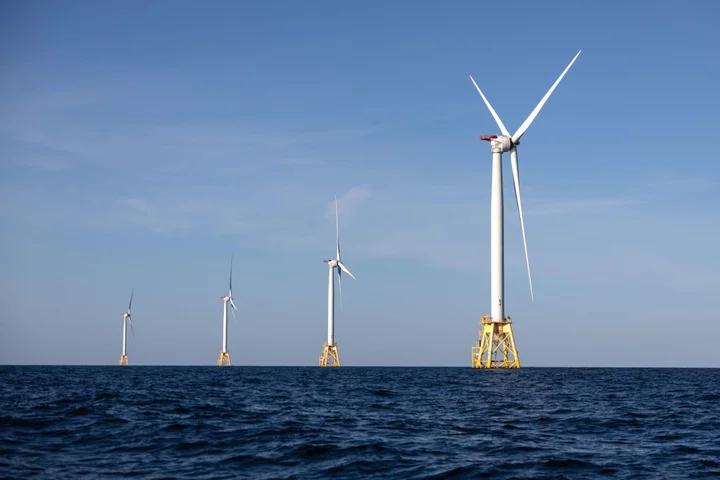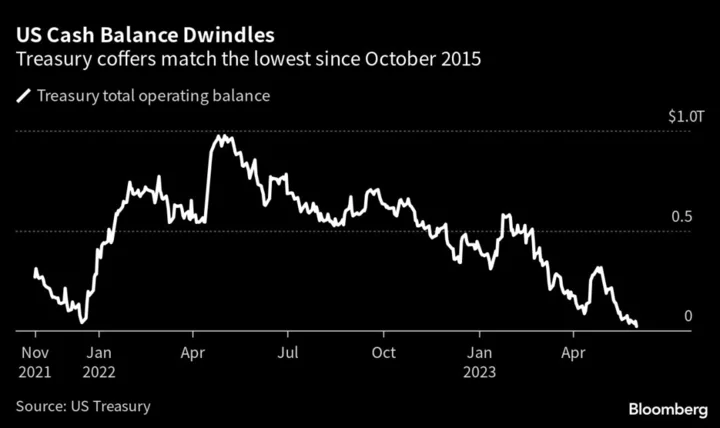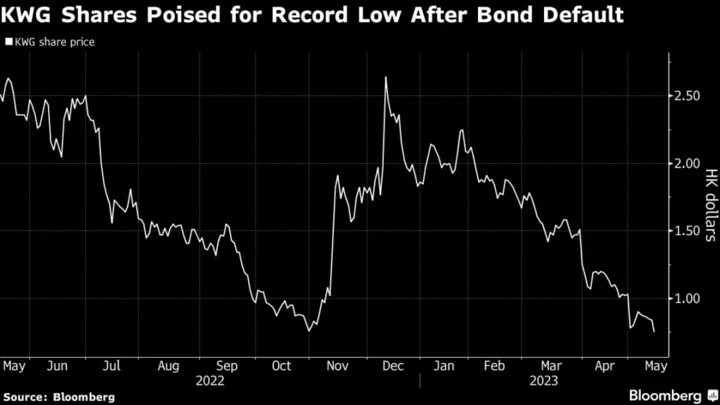Orsted A/S’s potential $2.3 billion impairment on its US projects is just the latest in a string of recent setbacks for the nascent US offshore wind industry, which is struggling to fulfill ambitious goals set by President Joe Biden.
Supply-chain issues, high interest rates and a so-far-unsuccessful bid for more federal tax credits threaten three planned projects off the US East Coast, Orsted said late Tuesday. The Danish company’s shares plunged 25%, the most on record, after its impairment warning.
Orsted isn’t alone in facing such issues. Developers including Avangrid Inc. and Shell New Energies are delaying projects after rising costs made some plans economically unviable. That’s a blow to Northeast states that are counting on the clean energy as well as Biden’s goal of installing 30 gigawatts of offshore wind capacity by the end of the decade.
“The massive attention for offshore wind, including ambitious state and federal goals, are running into the hard realities of energy infrastructure,” said Benjamin Salisbury, director of research at Height Capital Markets. “I think there’s a tendency for developers to think of themselves as the ‘good guys’ and be surprised when there are hurdles.”
Read More: Wind Power Is in Crisis Just When the World Needs It Most
One of those hurdles is tax policy. Last year’s sweeping climate law, the Inflation Reduction Act, expanded tax credits so offshore wind power projects generally can claim a base rate of 30% and, in some cases, get bonus incentives for using domestically sourced materials and building in so-called “energy communities,” such as in the shadow of former coal plants. Based on initial guidance from the US Treasury Department, it’s not clear Orsted would be able to claim those bonuses — a potential hit for its domestic projects.
Renewable power advocates are encouraging the administration to shift course in ways that would allow more ventures to tap into the bonuses, potentially by phasing in domestic content requirements or considering ports revitalized by offshore wind construction to be “energy communities.”
“The intent of the IRA is to help advance the early projects so that the industry can take firm root,” said Orsted spokesman Tory Mazzola. “If the Biden administration is serious about advancing the American offshore wind industry, we’d like to continue working with them to unlock the potential through these early projects that will enable the next generation of projects to be built with an American supply chain.”
Concerns extend beyond the East Coast. On Tuesday, just two companies showed up for a closely watched auction of wind leases in the Gulf of Mexico, a blow for advocates cheering on renewable power development in the region. The government ultimately sold just one tract for $5.6 million.
Energy companies may be recalibrating their bidding strategies after years of paying top dollar for prime real estate near large cities in the Northeast. The US government collected a record $4.4 billion in an auction last year for offshore wind leases near New York and New Jersey.
There are only two offshore projects that are under construction in the US — both south of Martha’s Vineyard, Massachusetts. They were able to line up supply deals before inflation drove up costs.
(Updates with details on potential tax-related impairment in fifth paragraph. An earlier version corrected impairment charge in first paragraph.)
Author: Jennifer A. Dlouhy and Will Wade









